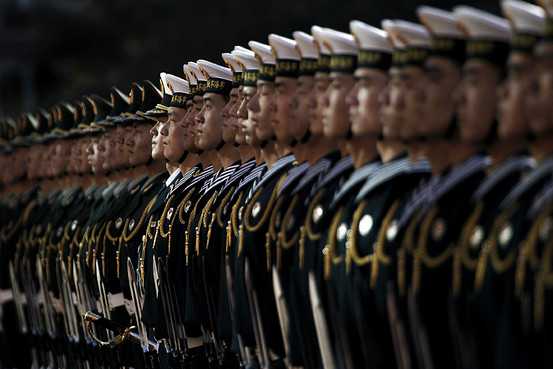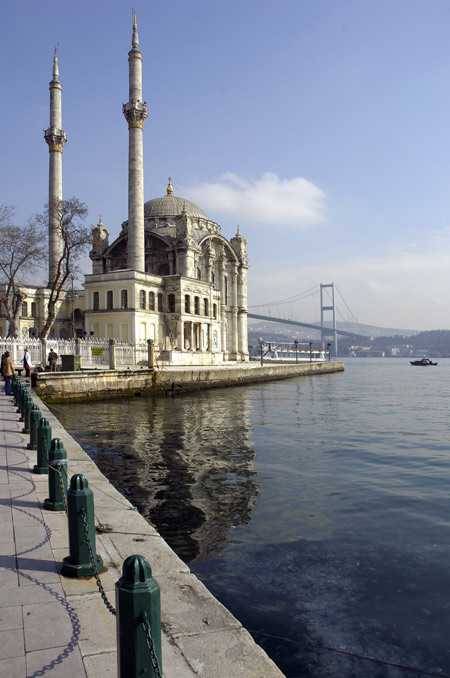BEIJING—Japan expressed concern over China’s planned double-digit rise in defense spending this year, highlighting trepidation in the region about China’s escalating military and economic might after a week of fresh Chinese territorial confrontations with Japan, South Korea and the Philippines.

Japan Foreign Minister Seiji Maehara urged the Chinese government to be more transparent about how it planned to use its newfound military firepower, saying, “Whether it should be regarded as offensive or defensive would require a close look.”
The comments came after China announced plans early Friday to increase its defense budget by 13% this year and as the week’s clashes built on concerns that China will increasingly use its escalating military power to assert its territorial claims in the region
Such fears have prompted many of its neighbors to to shore up defense ties with the U.S. and beef up their own militaries, threatening to push Asia into a new arms race.
China expects to spend 601.1 billion yuan ($91.4 billion) on defense in 2011, up from 533.4 billion yuan last year, Li Zhaoxing, spokesman for the National People’s Congress, told a news conference ahead of the start of the legislature’s annual session on Saturday.
The projected rise is faster than last year’s 7.5% increase—the slowest clip in decades—but is significantly slower than the roughly 19% annual growth in years before 2010.
The headline figure does not, however, include key items such as arms imports and the program to develop a stealth fighter and an aircraft carrier, according to foreign military experts who estimate that China’s real defense spending is far higher.
Mr. Li said the military budget would be used for purposes including “appropriate armament development,” training and human resources, while stressing that it remained relatively low as a proportion of China’s GDP and overall budget, and dismissing concerns that it threatened neighboring countries.
“China’s defense spending is relatively low in the world,” he said. “Every bit of China’s limited military strength will be used for safeguarding national independence, sovereignty and territorial integrity. He reiterated China’s oft-repeated refrain that its efforts “will not pose a threat to any country.”
On Wednesday, Japan scrambled fighter jets to chase off two Chinese military planes which it said flew within 34 miles of disputed islands in the East China Sea, which are known as Senkaku in Japan and as Diaoyu in China.
Japanese government spokesman Yukio Edano said Japan would not protest formally as the Chinese planes did not leave international airspace, but he also voiced concern over China’s growing military power and said Japan would monitor the situation. China’s Foreign Ministry didn’t immediately respond to a request for comment.
Relations between Asia’s two biggest economies plunged to their lowest point in years in September following collisions near the islands between two Japanese coast guard patrol boats and a Chinese fishing vessel.
In December, Japan, which in 2010 was surpassed by China as the world’s No. 2 economy, revised its national defense guidelines, which were drawn up during the Cold War, to shift focus away from Russia and toward the emerging threat from China.
China’s more forceful stance on territorial issues has also alarmed other countries in the region.
On Wednesday, the Philippines deployed two war planes to protect oil explorers who complained that they were being harassed by two Chinese patrol boats in a disputed area of the South China Sea.
The Philippine government demanded an explanation Friday for the incident at Reed Bank near the Spratly Islands, which are claimed by China, Brunei, Malaysia, Taiwan, Vietnam and the Philippines.
Chinese Embassy spokesman Ethan Sun reiterated his country’s claim to the Spratly Islands and adjacent waters, but said Beijing was committed to maintaining peace and stability in the area and resolving disputes through peaceful negotiations, according to the Associated Press.
South Korea’s Coast Guard said Friday it seized two Chinese fishing boats and their crews on Thursday after they were found fishing illegally in South Korea’s Exclusive Economic Zone, 64 miles southwest of Keokrulbiyeol island in the west sea.
During the process, one South Korean policeman was hurt by a weapon wielded by Chinese fishermen, and one Chinese fisherman was shot in his leg, the coast guard said.
China’s Foreign Ministry didn’t immediately respond to a request for comment on that incident.
Chinese officials and academics have toned down their rhetoric this year in an apparent bid to address concerns that China is becoming increasingly assertive on territorial claims, and that it plans to challenge U.S. military supremacy in the Asia-Pacific region.
In January, China jolted the region with a test flight of a new stealth jet fighter, indicating that China is further along in using the advanced technology than previous Pentagon statements had suggested.
China is also developing an antiship ballistic missile that could threaten U.S. naval vessels in the Asia-Pacific region, where the U.S. has long been dominant.
However, Mr. Li pointed out that China’s military spending accounted for only about 6% of China’s national budget, which he said was lower than in recent years—and well below the level of the U.S.
The defense budget “will see some increase, but the ratio of spending to GDP is quite low—lower than in many countries,” he added.
The Wall Street Journal


